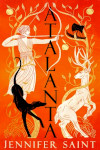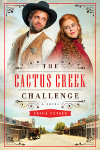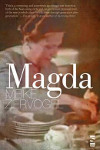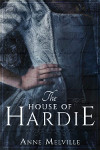Meike Ziervogel – The Photographer + Podcast Link
Posted 28th October 2019
Category: Reviews Genres: 2010s, Domestic, Historical, Political
Comments Off on Meike Ziervogel – The Photographer + Podcast Link
Launched today: click here for The Worm Hole Podcast episode 1, with time-slip author Nicola Cornick. If you’d prefer to listen using a mobile app, SoundCloud is available on the Google Play store and the Apple App Store. Finally, if you have social media and would be willing to share the link, that would be awesome, and thank you.
And now for today’s blog post:
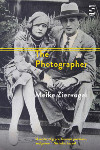
The other side of the war.
Publisher: Salt
Pages: 169
Type: Fiction
Age: Adult
ISBN: 978-1-784-63114-7
First Published: 15th May 2017
Date Reviewed: 27th October 2019
Rating: 4/5
Trude meets Albert when she and her friend are out together; Albert is a photographer for hire and Trude suggests he take a photo of her and her friend in exchange for a kiss. Thus begins their relationship. But Trude’s mother, Agatha, isn’t happy about this – Trude has always been a problem – and when she discovers something about the couple that will have an affect on Albert in the Nazi German regime, she makes a decision.
The Photographer is a story of the war in regards to those in Germany who had the chance to (mostly) get away.
In some ways, The Photographer is more of an easy read compared to Ziervogel’s past novellas. In contrast to those books, the narrative is relatively simple. There is less mental energy needed when assessing the characters as a reader. And the book is more generally literary than Magda and Kauthar in particular. However this only accounts for the accessibility of the novella – the issues involved are still just as hard-hitting as ever.
In Agatha’s awful, catastrophic, choice that she doesn’t seem to think through properly – or does she? The German people at the time did not know what we know since – there is a lot to take in and process. History shows us that snitching on someone you knew could have far-reaching consequences beyond that single person; Agatha never considers that the police could have also come for her as a close relative, nor that those she was under the impression her going to the police would protect could have been just as equally impacted as Albert, and so her choices hit you far more than they do her.
For all that happens – and thank god, Agatha, that Albert is lucky – once Agatha’s snitching becomes apparent, there is a relative lack of fallout. This is where reader subjectivity comes into play, strongly – you may find that Trude and Albert’s reactions are fine and appropriate given all contexts, but you may also wonder how Agatha manages not to end up in a very bad position. Both subjective thoughts are equally valid – how valid each one is to you personally depends on your interpretation of the book and what you bring to the novella. It is incredibly interesting that Ziervogel has written it in the way she has and begs a deeper study – if you have the time to read the book more slowly you may well appreciate it more. Certainly there is a lot to be said for both the desired and necessary codependency and the needs for survival between the characters as the book goes on; everyone needs each other, and Ziervogel’s melding of these two states is an interesting aspect of the book, with Trude ready to forgive her mother because she loves her, and Agatha needing her daughter.
Ziervogel’s descriptions and general placement of the characters as a sample of Nazi German people is brilliant. Again hindsight comes into play – you may never get used to the nonchalance displayed, by Trude in particular, but it’s crucial to learn. This is a family of very lucky people in general, with Ziervogel perhaps positioning them as she does in order to look at the country in a way we don’t often look at it – in relative terms the family do well for themselves, they get past the war fairly well, but around them, and in front and behind, is devastation.
So you get to see the regular everyday life – the shopping, the fashion, the going for coffees, the usual life. And you get to see the journey across the country, running from the Allies, who are rarely discussed, again allowing the focus to be on the family. And then the life that comes after. You get a superb feel for how Germany was and a sobering up from the result of displacement and taking refuge.
Albert’s time captive isn’t a main thread of the book but his memories, which he discusses with Trude, show brilliantly the extreme underside of an already-known bad aspect of history. Son Peter’s childhood and growth as a person provides a bit of general relativity as well as instances of the wars’ effects.
The Photographer deals with less-considered aspects of the Second World War in a way that brings both the horror and the living situation to the fore, leaving you with no doubt as to the affects. It is well worth your time.
I have met the author and attended a few of her events.
Related Books
Anne Melville – The Daughter Of Hardie
Posted 23rd August 2019
Category: Reviews Genres: 1980s, Commentary, Domestic, Drama, Historical, Political, Psychological
Comments Off on Anne Melville – The Daughter Of Hardie

The events of the early twentieth century.
Publisher: Agora Books
Pages: 283
Type: Fiction
Age: Adult
ISBN: 978-1-913-09901-5
First Published: October 1988 (as Grace Hardie); 15th August 2019
Date Reviewed: 22nd August 2019
Rating: 4/5
Grace is provided with an inheritance a short time after her birth – her mother, Lucy’s, grandfather gives the couple money with which to make a house that will go to their daughter. With four older brothers, little Grace wishes she had more options; as she reaches early adulthood, Britain goes to war. It will change everything for everyone.
The Daughter Of Hardie is the second book about the wine trading turn-of-the-century family that begun with the great The House Of Hardie; continuing in that same vein, Grace’s early years, and those of her brothers, are filled with solid research.
The historical and situational detailing that made up so much of the success of the previous book is in full bloom. After the first several chapters, which are strictly okay – functional but not fascinating – Melville moves her story to the WWI years; the book takes flight, delving into specifics of the War and related subjects in a way that’s rather unique to her. To bring in a present-day literary comparison, Melville is perhaps most akin to Anna Hope whose book, Wake, also looked at slices of life in the same period of history. However the subjects and execution differ; it could well be said that Melville, writing twenty odd years prior to Hope, did it even better; her scenes about these War specifics are short, almost vignettes, but they show a level of care and research that is unmatched.
This adds up to a lot of the immersive quality of the book. We return again to the places and concepts Melville explored before; some remain the same, others have moved on due to the passage of time – Midge’s career, for instance, has progressed albeit within the social limits. Melville has worked a rough 50/50 split between time spent on the new generation and the ‘old’, the 50% that concerns the children naturally skewed in Grace’s favour.
Much more so this time, this book is one for the characters. The plot is thin, a light bildungsroman without big conflicts, but due to all the above, what might have otherwise been slow progression is pretty much perfect. A number of the conflicts involved concern childhood events and their effects.
With Melville’s focus on the war years comes a look at the resulting societal changes – the author continues on her theme of individual agency, the expansion of life choices for women. It’s a major theme however due to the number of characters it’s perhaps not as major, in general, as you may expect; Melville does like to cover a lot of subjects and delve into everyone’s lives. Again, due to the whole this is not a drawback.
There is a bit of a drawback in thelatter chapters. Making a direct relation to a later plot point of the first book, Melville revives an element that had appeared neatly tied up, creating a deus ex machima situation that could… possibly… have been plausible; the grounds are sketchy. It comes across as a bid for more content and characters but none were needed; certainly given that Melville brings it into play then ties it back up again begs the question of ‘why’. Apart from this, however, the ending is fair if surprising, enough closure for what is understandably a prelude to book three and a nice bringing together of various people and situations, all trying to live in a shattered world.
In sum, then, The Daughter Of Hardie is a good continuation of a good story, a compelling compilation of small studies of the war years. Once it gets going it is incredibly immersive and other than a few blips it is a very enjoyable read. It will most intrigue those who want to carry on the story but the way background details have been included it could be read as a standalone – this reviewer would simply suggest you read both for maximum literary enjoyment.
I received this book for review.
Related Books
Michelle Obama – Becoming
Posted 31st July 2019
Category: Reviews Genres: 2010s, Autobiography, Political, Social, Spiritual
Comments Off on Michelle Obama – Becoming

The journey to the White House.
Publisher: Viking (Penguin)
Pages: 421
Type: Non-Fiction
Age: Adult
ISBN: 978-0-241-33414-0
First Published: 13th November 2018
Date Reviewed: 16th July 2019
Rating: 4/5
Michelle Obama, previous First Lady of the United States, was born on the South Side of Chicago to working class parents. Her family strove to ensure she and her brother had all they needed to ‘launch’ successfully. Michelle went on to study law at the prestigious Princeton University, and then started work at a law firm. Her path in life was altered by the arrival of a socially-conscious and driven, yet very casual, intern.
In Becoming, the lengthy and detailed autobiography, Obama (from now on referred by her first name) tells us her story from birth to the end of Barack’s presidency. A fairly honest account (understandably limited), the book provides a lot of information about the workings of the presidential office, and a well-written and considered critique of American society, mostly in the context of childhood and education.
Becoming is split into three parts – Becoming Me, Becoming Us, and Becoming More, with the rough alignment of life stages you would expect. Several pages of photographs are slotted into the middle and, at least in the hardback edition, more photos line the inside of the front and back.
The first section has a fair amount going for it in terms of preference due to the relative lack of politics involved in a person telling the story of their childhood, and the fact that Michelle is able to spend more time on the subjects she most wants to discuss in the way she wants to discuss them. It is where Michelle has the time to talk about the make-up and complexity of American society, Chicago in particular, her experience as a black girl and later teenager in a working class area of a big city, together with the more general experience as a person in that time (1960s) informing the text; Michelle shares vast insights about issues that remain to this day, issues that have naturally had a knock-on effect on the decisions she made in terms of the creation of First Lady sociopolitical campaigns. (First Lady is not considered a job but does come with sociopolitical requirements.)
During the first section, Michelle talks about the way her neighbourhood, and by extension her school, was composed of a racially diverse group of people, and how the mass migration of the white population away from the area during her elementary (primary) school years had a huge effect on the lives of those remaining. The subject is one of the forerunners of Michelle’s book-long exploration of the issues children from less advantaged backgrounds have to deal with in the education sector. It’s an excellent study wherein the author situates her thoughts on the side of the kids:
If you’d had a head start at home, you were rewarded for it at school, deemed “bright” or “gifted,” which in turn only compounded your confidence. The advantages aggregated quickly (p.18).
Now that I’m an adult, I realize that kids know at a very young age when they’re being devalued, when adults aren’t invested enough to help them learn. Their anger over it can manifest itself as unruliness. It’s hardly their fault. They aren’t “bad kids.” They’re just trying to survive bad circumstances (p.22).
Michelle’s look at life in the suburbs of Chicago includes her father, who worked in the boiler rooms at a factory, her mother, who kept the home and also found work in a bank, her grandfather who for reasons related to his social position distrusted the medical profession, and her great aunt whose house the family lived in and who taught Michelle to play the piano. There are a couple of mentions of Michelle’s great-great-grandfather, necessarily less detailed. He was a slave.
When it comes to Barack, who enters in the second section, there is a surprising amount of honesty. Michelle details his personality, particularly in the social and domestic sphere where his drive for a better local and then national community is often on the same page as his lack of attention regarding household duties. So honest in the household area of life it is, in fact, that it goes almost too far to where it feels as though Michelle’s words are there to persuade you into thinking the couple were (and are) not well suited enough, which surely was not the intention. Thankfully, it comes to an end before the end of the section and the narrative as a whole remains relatively unaffected. Perhaps it needed to be better written. Certainly with three pairs of eyes continually on the manuscript (Michelle acknowledges the contributions of another writer and her speech writer) it would have helped the book in general if various repetitions had been omitted.
The final section, where the Obamas look at the possibility of the White House, moves back towards the success of the first half. It is here where all the thoughts about children’s education and lifestyles come full circle as Michelle moves into a position that allows her much more freedom in regards to doing what she wanted in her previous roles (the second section had discussed her early work for lawyers and charitable organisations).
Michelle was coming into the idea of growing your own food and teaching children just as a number of researchers were starting to promote the idea. Robin Shulman, whose book, Eat The City, a look at the quiet revolution in New York high-density housing areas where residents used any patches of unused land to grow vegetables, cited Michelle’s then-new campaigns in the afterword to her book. Michael Pollan, author of The Omnivore’s Dilemma, published a little after the garden was started, also had favourable words to say (though they were in an article rather than his book).
The main thread of the final section however, is of course that of Barack’s presidency. The information included will for many people be a culture shock, as the family are unable to open any windows, go outside or even simply go to another part of the building without 30 minutes debate from security; a date night involves shutting down access to all the streets on the journey and checking anyone who is unfortunate enough to have booked their table for a time after the Obamas got there. In many ways, non-American readers will gain a lot more from this section than Americans.
Michelle’s stories include those that show why some people wouldn’t have been happy with Barack leading their country – the book continues in its honesty and this relative objectivity is a good thing. She is honest and harsh in her thoughts of the man who took over, but that’s to be expected; it also explains her choices at the inauguration where her lack of smiles was noted.
A big shining light of the final section is the family as a whole; with the children now old enough to understand the basics, and Michelle’s mother living in the White House, the parts that focus on the individual members are, for all their briefness (for privacy’s sake), often the best parts of any one chapter. Michelle’s mother remained relatively free to come and go and the two girls’ conduct and answers to various questions they receive show a level of maturity that’s compelling.
As much as Becoming is lengthy, it’s also a pity when it comes to an end; you will find yourself investing a lot of different mental resources in this book. It could definitely have done with more editing. It could also have done with more of what’s only touched on, but given the people involved, this is one of those few occasions where that can’t be called an active drawback. Becoming isn’t perfect but the subjects it looks at in detail, namely those more unique to Michelle than to Barack and the rest of his team, are fascinating. The social history, the social present, and Michelle’s chosen angle for her commentaries, are compelling. There is plenty here to learn and be inspired by and more than a few stories you’re going to want to jot down and remember.
I received this book for review.
Birgit Vanderbeke – You Would Have Missed Me
Posted 14th June 2019
Category: Reviews Genres: 2010s, Domestic, Political, Psychological, Social, Spiritual, Translation
Comments Off on Birgit Vanderbeke – You Would Have Missed Me

They certainly might have.
Publisher: Peirene Press
Pages: 114
Type: Fiction
Age: Adult
ISBN: 978-1-90867-052-6
First Published: 2016; 15th June 2019 in English
Date Reviewed: 14th June 2019
Rating: 5/5
Original language: German
Original title: Ich freue mich, dass ich geboren bin (I am glad, that I was born)
Translated by: Jamie Bulloch
Birthday number 7; a kitten is still wanted but won’t be coming, mother still brings up her wealthy ex-fiancé, and father remains emotionally distant. As does mother. As the days move on our young narrator talks about her life as a new resident of West Germany where life is plentiful but, for her, still troubled. She misses family friends, struggles to understand house rules, and would like it if her mother let her have a drink more than twice a day.
You Would Have Missed Me is a novella written in the style of a stream of consciousness. A semi-autobiographical work, the book shows the realities of everyday life in 1960s Germany (both sides), and the further realities of life for a child whose parents could be a lot better.
The narrator works through her past, wrapping memories back around every so often, showing the impact of a life of neglect on the psyche of a child. The affect of this neglect, and outright abuse – both emotional and physical – causes problems for the girl who isn’t yet fully able to understand what is going on; she has a fair idea, but there is a lot more for the reader to pick up from the subtext of what Vanderbeke is saying. The abuse is accounted for very slowly, dripping through the narrative.
The differences between East and West Germany are shown often, mostly as items and social mores in the background. In the context of the narrator’s childhood life, the particulars are obviously more noticeable than the general, political, aspect, but there are moments when these are covered enough to clue you in to the wider social contexts. Sometimes the parents’ insults can seem to meld with the standards of living – it’s worth having a quick read up on the intricacies of life in Cold War Germany if it’s not a topic you know much about.
Between these strands, created by them, is the narrator’s fantasy of travel, escaping from everything that has happened in her life to somewhere better, if only for a moment. A snow globe, a gift from a friend in the East who knew a lot about the world, and their later gift of a book she had been wanting to read, H G Wells’ The Time Machine, are key.
The age-appropriate prose has been translated by Jamie Bulloch, who has worked on a good few other Peirene Press publications. Bulloch has opted for a mix of general comprehension and word-for-word; the book both seeming to echo what is surely the original language whilst translating into the English emotional dialect, if you will, the few things that would not work so well, the end result a careful, wonderful, rendering.
As a slice-of-life story that nevertheless recounts a lot of details on a specific few themes, You Would Have Missed Me is very character-driven, almost topic-driven, and whilst it does have an ending, there is a fair amount left for you to decide; the narrator’s story is only on year 7, and so there is plenty of scope to decide the likelihood of the various directions her life could go in regards to the personality she presents you, and how much her fantasies of better places are a part of it (looking at the book as a work of fiction). This is a book about the impact of the Cold War on the general public, and of an upbringing on the rest of someone’s life. It’s difficult to read, it’s sometimes shocking, but it’s a good dose of reality, history, and things that still today need improvement.
I received this book for review.
Monica Ali – Brick Lane
Posted 22nd March 2019
Category: Reviews Genres: 2000s, Domestic, Political, Social, Spiritual
1 Comment

Left To Her Fate.
Publisher: Doubleday (Random House)
Pages: 407
Type: Fiction
Age: Adult
ISBN: 978-0-385-60484-0
First Published: 2013
Date Reviewed: 20th March 2019
Rating: 3/5
At birth Nazneen was left to fate; she survived. As an adult she is married to Chanu, an older man, and leaves Bangladesh for London. She arrives to a burgeoning community of diaspora, the Bangladeshi population in Tower Hamlets laying roots and working to make a new life. But Nazneen is still leaving things to fate; as the world moves around her she watches; she is the wife Chanu wanted, she’s a friend to others, but she remains somewhat outside, as life continues.
Brick Lane is a novel about the life of an immigrant to London from the 1970s to the early noughties.
Ali’s lengthy book rests on the overall concept of fate, a story the younger Nazneen heard over and over again, called ‘how you were left to your fate’. As such, Nazneen does not often get involved with social events or even friendships when she could if she wanted to; the book is both a reflection of an immigrant’s experience, and the story of Nazneen’s particular life as affected by her mother.
This latter aspect means that Nazneen is a particularly passive character; away from the understandable case of isolation early on, Nazneen has ideas of things she’d like to do but never does anything about it. If this passivity is Ali’s way of writing cultural difference it could have made sense, but Nazneen is among people who are actively part of their local community, and whilst Chanu doesn’t teach her English and does expect the home kept nicely rather than encouraging her to be out and about, he involves her in his educational ideas, discussing neighbours and friends, and invites people over to socialise with them. Effectively, as much as Chanu doesn’t offer active support, it’s Ali herself who puts up the biggest barriers around Nazneen, creating isolation which in the context of the rest of the book is unnatural.
Chanu is an interesting character, at once compelling and utterly irritating. His story is of a potential success; he knows a lot – or, rather, he knows he knows a lot. He can do intellect, but moving forward from that and incorporating the opinions of others, is difficult; he does not get the jobs he wants and misjudges how others think of him. His personality and education means a lot of his dialogue is academic lecture – he’d be at his best in front of a room of students, though he might succeed in sending most of them to sleep.
With Nazneen being the character the book revolves around, there is little story and many dull pages. Due to Ali’s continual application of passivity, the moments that offer real promise are passed over almost as soon as they’ve begun. This is a problem because these moments are to do with conflict – the book’s timeline includes 9/11, the people on the estate are Muslim, and you hear enough from what Nazneen hears about to realise that if Ali had let her be a proper part of her community, like all the other characters, this book would have a lot to say. Where there is a bit included about rioting, most of what happens is missed out.
Nazneen’s life gets a bit more interesting when she meets the young man who brings her clothes to repair, but this is also short-lived and fairly unremarked-upon. That something happens between them doesn’t fit her character – perhaps it serves as a push against fate, but due to Ali’s construction of her personality, it’s effectively a contrived reversal of a contrived character. The ending of the book is what was needed, but coming so late in the day it’s difficult not to wonder whether it wasn’t simply a case of the author noticing she needed to do something with her story if she was to finish it.
The one area where the book is interesting is the letters Nazneen’s sister sends; in Hasina there is good story, and it’s sad that more wasn’t included because Hasina does not let fate run her life. (This is likely the point of the inclusion, to show difference.) It is told in a strange fashion, however, written in broken English when Hasina would have surely written to Nazneen in their mother tongue – and if it is the mother tongue Hasina is writing in, why would it be broken?
A potentially fascinating character and her family are given short shrift, the community seen only through her eyes and thus only seen vaguely, the knock-on effect of a major world event is not given the time it needed. There are plenty of books that cover the various aspects of Brick Lane to better effect.
Related Books
None yet











